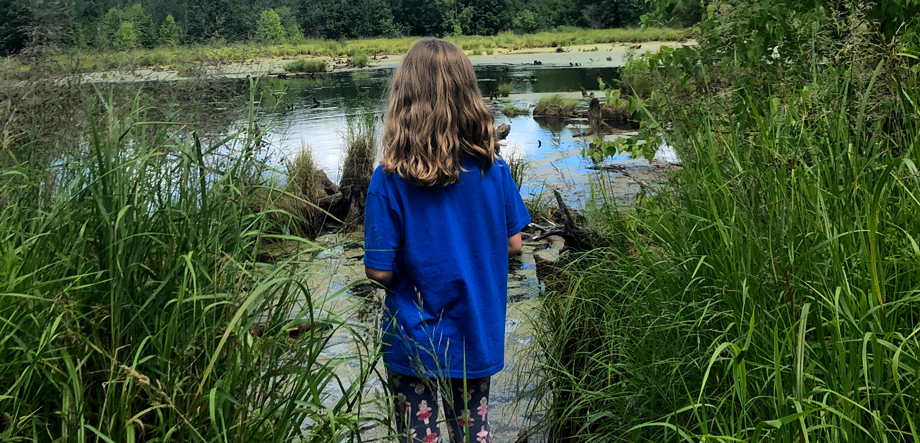Looking For Ourselves: The power of authentic experiences in natural spaces

The act of looking for oneself is cognitive. Even a quick glance, like looking at a seashell, enables us to learn several different kinds of things at once.
An excerpt from Shari Tishman’s Slow Looking: The Art and Practice of Learning Through Observation.
She had been crouched over something for some time, it was clear by her body language that she did not want company as she looked intently at the ground. She now sits cross legged on the carpet of freshly fallen leaves. Her small hands rest quietly in her lap. I decide it is a good time to approach. The look on her face is difficult to read; a mixture of quiet contemplation, sadness and curiosity.
“How are you?” I ask.
She responds by nodding her head in the direction of a small pile of leaves. I follow her gaze to land on a patch of grey-brown fur peaking out from beneath the carefully arranged foliage.
“It’s one of ours,” she whispers as she takes a stick and gently pushes aside the leaves, revealing a small vole lying motionless on its back. I put my arm around her and we sit in silence for a few minutes.
Several days earlier she and her classmates had spotted this very creature as it scurried along a nearby log. Excited by this discovery, we all sat and watched the vole, a mother, the students concluded, as she scurried back and forth from her nest at the base of an old stump.
Now here we are, watching the same creature, but in a vastly different context.
“What do you think happened to her?” She asked.
“Hmmmm, it’s hard to say, do you notice anything that might give us an idea?” I reply, encouraging her to look closely and observe the way the ground was disturbed around the small vole.
From there flows a transformative conversation about mammals, predator-prey relationships, food systems and honouring life. When we are done talking, she carefully covers the small creature with leaves and lovingly marks the small grave with several brilliant red high bush cranberries.
This is the power of learning in nature; the great impact of having the opportunity to look for yourself, to question for yourself and to feel for yourself. The Beaver Hills Biosphere has embarked on a project to develop a plan for education and nature-based learning that seeks to connect people with opportunities to look and experience for themselves. As we build this plan, we look forward to drawing on the research and observations of Professor Tishman and other experts in experiential, inquiry and constructivist learning.
We also intend to draw inspiration from your experiences. Experiences such as the one described above, between a student and her educator, experiences shared among family and friends, experiences of looking closely and “learn[ing] several different kinds of things at once.”
In the upcoming months, we will be inviting you to share your experiences of, ideas about and hopes for meaningful education in the Biosphere. To learn of these opportunities and to contribute to our education plan, please keep an eye on our social media and our website.
Written by Tara Beck, Education Planning, Beaver Hills Biosphere